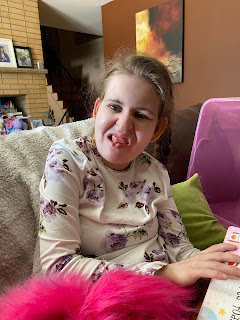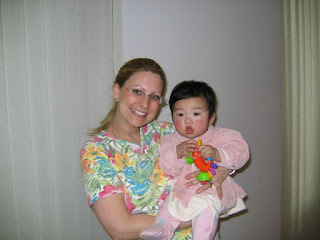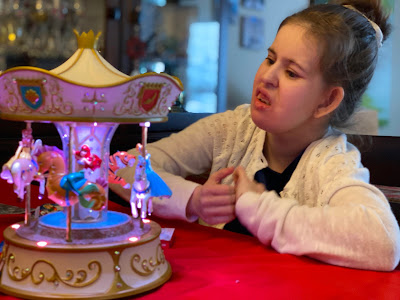The Goddess, Group Homes and Guilt - One year later...BOOK EXCERPT INCLUDED
It has been just over a year since the pandemic began. COVID has stolen a lot – from all of us. For my family, it has stolen time. Time away from Maia. When the first lockdown began, we were not able to visit Maia in her home nor bring her home to visit. For six months. All we were allowed were visits at the end of the driveway, wearing a mask, without so much as a touch of her to let her know we loved her and wanted to hug her so badly. She couldn’t possibly understand. Maia has recently turned 26 years old. We were with her this year, unlike last year when her epic 25th birthday party was cancelled.
It still haunts me, that period of time. What could have possibly gone through her mind? Would she live through this? If not, would we ever get to hug her again? The guilt. The guilt was compounded by the fact that we had chosen to have Maia live in a group home for other adults like her, because we struggled to raise her any longer at home, for a lot of reasons. And here we were, now faced with a reality that no one could have ever predicted. Despite the new lockdowns currently in Ontario, we are able to visit her at least as essential visitors. She knows we love her, and she is doing okay. She has just had her first dose of the COVID vaccine, and we have hopes of return to normal one day. Despite everything we have all gone through, I still do not regret the decision for her to move into a group home. That doesn’t mean that I haven’t struggled, broken down in despair (a lot) and wished things could be different.
For those of you who wonder what that process is like, I wanted to share an excerpt from my book, “Raising the Goddess of Spring: A guide for parents raising children with rare chromosome disorders” about my thoughts at the time of placement in residential care. If you would like to read more about my story and the stories of others, you can find the book on Amazon in both print and ebook format. As always, I am happy to hear from you, answer questions or be an ear for your own struggles.
From Raising the Goddess of Spring:
Residential Supports
Since
the age of twenty, Maia has lived in a local group home run by a fantastic
agency with caring and inspirational staff. Despite this, my feelings of
failure as a parent were never more significant than when I had to make that
decision. I opened myself up to judgement and scrutiny by others who could
never imagine “doing that to their child.” So many thoughts ran through my
mind. What would she think? Would she be
scared? Would she accept her roommates and her new caregivers? Would she be a
target for abuse? Would they know what she wanted? Would they be able to
understand her signs? Her looks? Would they be able to manage her behaviours?
Would she think I abandoned her?
My
younger daughter, who was ten at the time, asked me if I would “give her away,
too” if she didn’t behave. Gulp. The
guilt was tremendous. I cried a great deal through the process, and I cried
almost every time I left her after a visit for at least the first year. Do I
regret it? No. Do I wish things could be different? Yes. But I know for my
mental health, my husband’s and my family’s, that we needed this level of
support for her. We could not get enough in-home support to allow me to work,
and what would she do when school ended? There were waiting lists for day programs,
but she didn’t suit any of them. Maia has thrived since she moved into the
home, with five other residents who have comparable needs.
Maia has a life that I could never have been able to give her, with peers, and a social life that suits her. She goes swimming, to dances, dinners, movies, and parties. She has her medical care, medication and day-to-day needs managed by a phenomenal staff. While I know that this decision is not for everyone, our family is grateful every day for this support, and we can visit her day or night and be an active part of her life. One of the residential workers, who was trying to console me one day as I was leaving after a visit and having a hard time, told me that it was natural for her to move out. If she were healthy and able, she would be off at university or working with her own place. She deserved a life as an adult. It helped to hear that. It was also one way that we could prepare for her to have a life without us as we get older. How else would we physically manage or be able to ensure she was safe and secure going forward? What would happen if my husband and I died suddenly, and no one else knew how to care for her? If we didn’t die, would I be eighty years old and still lifting her? Knowing she is safe and well cared for in advance of anything happening to us is reassuring. I know most of the parents I am in contact with have chosen to care for their child at home, and they have thought about all these same issues, too. Everyone will find their path. No one can make that decision but you.





Comments
Post a Comment